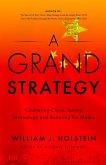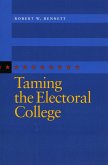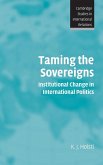" Despite three decades of vigorous efforts at deregulation across the government, regulation remains ubiquitous. It also continues to be unpopular because it forces individuals and businesses to do things-frequently costly and unpleasant things-that they don't want to do. If regulatory programs are to survive and remain effective, the challenge posed by their endemic unpopularity and political vulnerability must be met. Unlike much of the existing literature on regulation, Taming Regulation begins with the assumption that the government's capacity to utilize regulation as a policy tool is vital. The book examines the questions of how to make the inherently coercive aspects of regulation more politically acceptable in the present antiregulatory environment and how the legal and administrative challenges of reform in ongoing regulatory programs might best be approached. The authors explore these issues through a case study of administrative reform in the Superfund program. Chartered with an ambitious mission to clean up the nation's hazardous waste sites, Superfund was from its inception a uniquely aggressive and unpopular program. Yet despite the election in 1994 of a Republican Congress committed to fundamental changes in environmental regulation, the Superfund program weathered the storm and remains intact today. The authors credit this political and programmatic success to a series of artfully designed and orchestrated internal reforms that softened Superfund's implementation, thus increasing its political support while retaining its potent coercive tools. Taming Regulation provides a cautionary discussion of both the necessity and the difficulty of regulatory reform. It is essential reading for students of regulation and environmental policy, for practitioners contemplating reform of ongoing regulatory programs, and for those interested in the checkered history of Superfund. "
Hinweis: Dieser Artikel kann nur an eine deutsche Lieferadresse ausgeliefert werden.
Hinweis: Dieser Artikel kann nur an eine deutsche Lieferadresse ausgeliefert werden.








